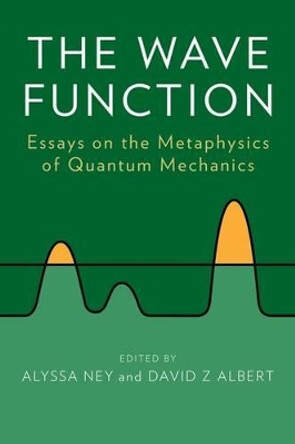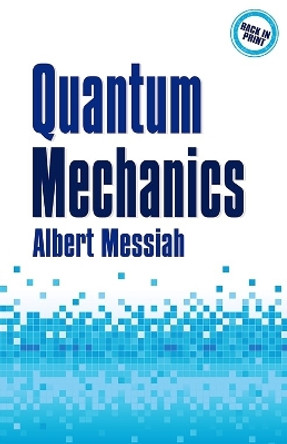Description
From the celebrated author of Quantum Mechanics and Experience comes an original and exhilarating attempt at making sense of the strange laws of quantum mechanics.
A century ago, a brilliant circle of physicists around Niels Bohr argued that the search for an objective, realistic, and mechanical picture of the inner workings of the atom-the kind of picture that had previously been an ideal of classical physics-was doomed to fail. Today, there is widespread agreement among philosophers and physicists that those arguments were wrong. However, the question of what that picture might look like, and how it might fit into a comprehensive picture of physical reality, remains unsettled.
In A Guess at the Riddle, philosopher David Z Albert argues that the distinctively strange features of quantum mechanics begin to make sense once we conceive of the wave function, vibrating and evolving in high-dimensional space, as the concrete, fundamental physical "stuff" of the universe. Starting with simple mechanical models, Albert methodically constructs the defining features of quantum mechanics from scratch. He shows how the entire history of our familiar, three-dimensional universe can be discerned in the wave function's intricate pattern of ripples and whorls. A major new work in the foundations of physics, A Guess at the Riddle is poised to transform our understanding of the basic architecture of the universe.
About the Author
David Z Albert is Frederick E. Woodbridge Professor of Philosophy at Columbia University and the author of Quantum Mechanics and Experience, Time and Chance, and After Physics. His writing has appeared in numerous scholarly journals of physics and philosophy, as well as in the New York Times, the New York Review of Books, and Scientific American.
Reviews
The physical interpretation of quantum mechanics has been a controversial riddle since the 1920s, when Niels Bohr argued that the atom's inner workings could not be described in physical terms. Today, many philosophers and physicists disagree, but there's no consensus on an alternative. Philosopher David Albert's provocative book argues, in three essays, that Bohr's quantum-measurement problem starts to make sense if the wave function is understood as the fundamental physical 'stuff' of the Universe. -- Andrew Robinson * Nature *
An enormously significant contribution to the philosophy of physics and to metaphysics more generally. In his usual charming and deceptively easy-to-follow style, Albert proposes a novel account of the relation between the fundamental and the non-fundamental-one of the central issues in metaphysics. This is sure to generate a great deal of discussion in the field. -- Barry Loewer, Distinguished Professor of Philosophy, Rutgers University
A must-read for anyone interested in the philosophy of physics or adjacent portions of metaphysics. Wave-function realism's offensive is advanced, its defenses bolstered, its intuitive core reimagined. Insightful and deep and challenging and (of course) fun-vintage Albert. -- Theodore Sider, author of The Tools of Metaphysics and the Metaphysics of Science
Albert presents a strikingly original picture of the structure of quantum mechanics and how it describes the world. He shows, by construction, what it is that unifies approaches like the Ghirardi-Rimini-Weber theory, Bohmian mechanics, and the many-worlds formulations. For those who understand the quantum measurement problem and have begun to think carefully about how to solve it, this is an essential read. -- Jeffrey Barrett, author of The Conceptual Foundations of Quantum Mechanics
For a quarter of a century, David Albert has been one of the chief advocates of the wave-function-realist interpretation of quantum mechanics. In this beautifully written and provocative new book, Albert presents the case, as he sees it, for wave-function realism and its surprising higher-dimensional metaphysical framework. -- Alyssa Ney, author of The World in the Wave Function: A Metaphysics for Quantum Physics
Quantum-mechanical phenomena prove that somehow or other classical physics-and even 'common sense'-have led us massively astray about the fundamental structure of the world. Albert, in his inimitable conversational style, digs deeply into the argument that our intuitive notion of the structure of physical space lies at the root of the problem. -- Tim Maudlin, author of Philosophy of Physics: Quantum Theory
Book Information
ISBN 9780674291263
Author David Z Albert
Format Hardback
Page Count 144
Imprint Harvard University Press
Publisher Harvard University Press





